Blog » How to Guides » International Coaching Federation (ICF) – Everything you Need to Know
International Coaching Federation (ICF) – Everything you Need to Know
Every coach worth their salt has, at least once in their career, heard about the International Coaching Federation, or ICF, as it is commonly known.
But what does the International Coaching Federation do?
Do they certify coaches?
Do they give coaches clients?
Do they offer training workshops?
I have got you covered.

So if you want to:
- Learn all the ins and outs of the International Coaching Federation.
- Learn how to become accredited by ICF.
- Learn how you can use it to leverage your career to greater heights.
You’ll find this guide extremely informative and useful.
So let’s get started !
Don’t have time to read the whole guide right now?
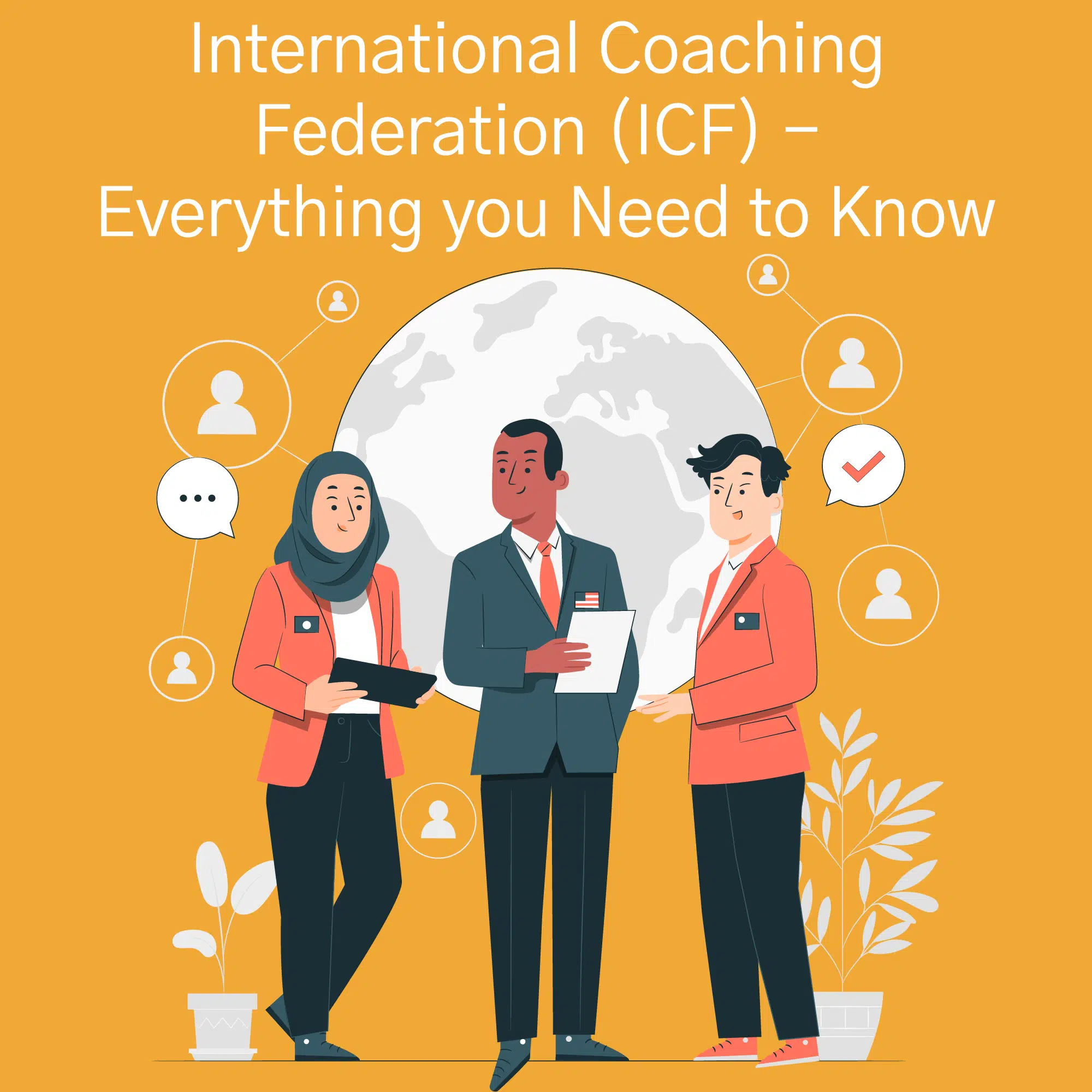
No worries. Let me send you a copy so you can read it when it’s convenient for you. Just let me know where to send it (takes 5 seconds)
Yes! Give me my PDFStep 1:
The Basics of International Coaching Federation
Touted as the most recognized training institute for coaches, the International Coaching Federation was the first one to implement standardization in coaching.
It is one of the most recommended certifications a coach can gain and, in this chapter, I’ll be telling you all about the fundamentals of ICF.
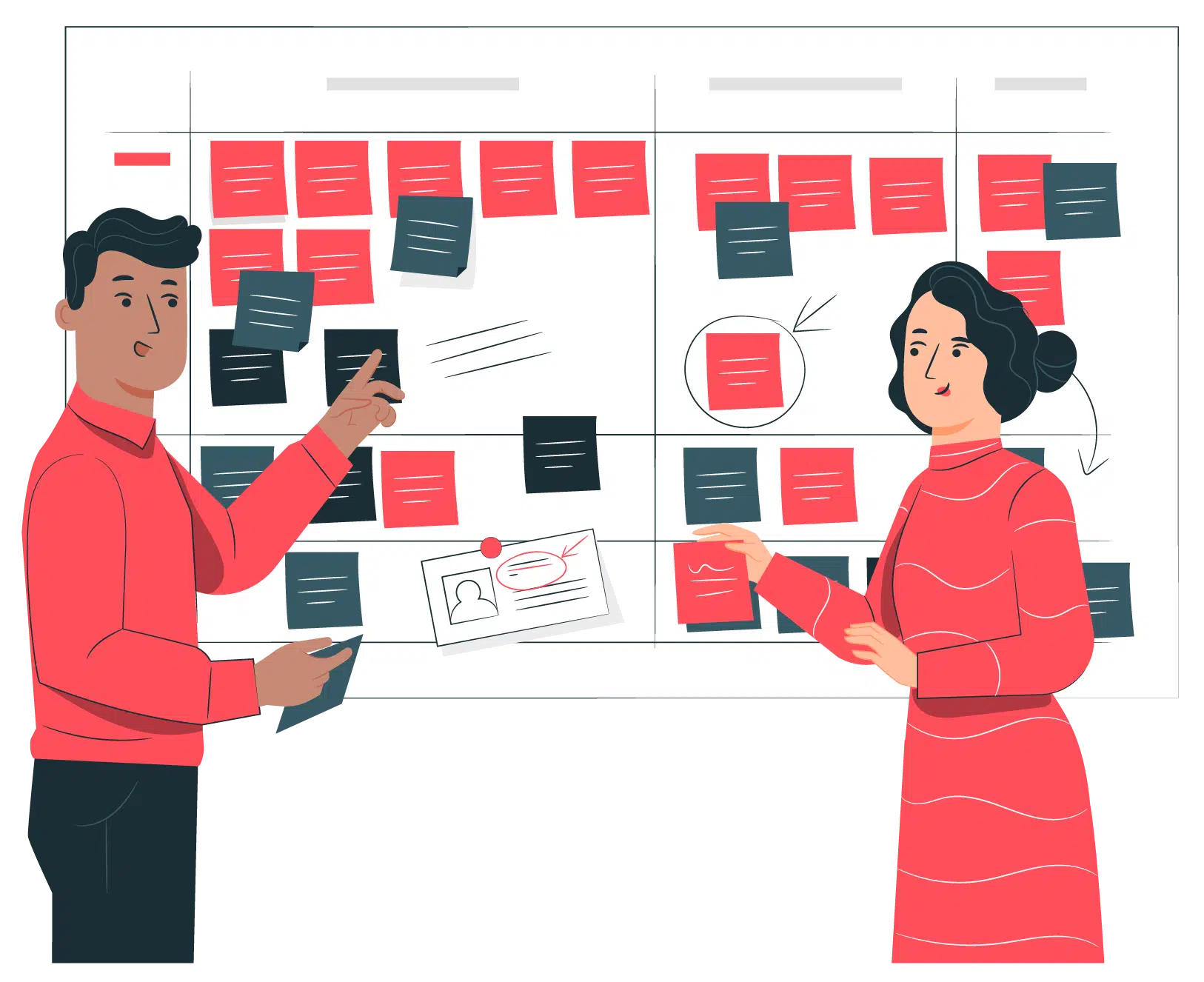
I will now cover the ICF’s definition, history, and — in particular — why it is important for you to get accredited as a coach.
Let’s jump right in!
What is ICF, and what does it do?
The first question you might have is possibly — what does ICF stand for?
ICF stands for — International Coaching Federation.
On their website, ICF describes itself as ‘The leading global organization for coaches and coaching. ICF is dedicated to advancing the coaching profession by setting high standards, providing independent certification, and building a worldwide network of trained coaching professionals.’
In essence, the International Coaching Federation is the only globally recognized organization that certifies coach trainers and gives them a credible platform.
Once you get certified, you automatically also become a member of the organization.
It also accredits other programs and training institutes that offer training courses for coaches. They have a very rigorous and highly vetted process for selection and accreditation.
Refer to this part in our article to understand the accreditation process in detail.
Apart from accreditation and being a membership institution, ICF has lately been trying to expand into all things related to coaching.
So, one can also find a coach, learn thought leadership, or organize coaching events with the help of the International Coaching Federation.
Why is getting accredited by the ICF important?
Many people think that coaching doesn’t require any certification, and that is partly correct.
Every day, I come across several coaches who are not certified and, yet, have a long list of clients.
A lot of these coaches are also very good at what they do.
In fact, we — as coaches — also advise our clients to move beyond labels in their life.
So then, is getting accredited through an organisation like ICF really that important?
In my humble opinion, the answer is yes.
Think of it this way – you have a very dear friend of yours who is great at giving advice.
Their advice has worked wonderfully for you in the past, and you constantly find yourselves turning to them for advice.
One day, you suddenly feel an itch in your throat.
Would you go to your friend for advice, or to a registered doctor?
Unless your friend doubles up as a physician, you would most probably go to a doctor. Why is that?
Simply because you know and recognize that the doctor who holds a certification specializes in their field, and can guide you optimally. The same logic extends to coaching.
As coaches, we not only owe it to our clients, but also to the profession itself, to show up with proper knowledge, training, and exposure before advising clients.
When we take on the role of coaching, we take on the responsibility of someone’s well-being.
Albeit not in the same way as a doctor, we are capable of creating long-lasting impact on our clients.
That is why it is always advisable to be certified.
Many institutions and countries won’t recognize you as a legitimate coach if you are not accredited or certified.
They might also not allow you to coach, in that case.
Since the International Coaching Federation is the most trusted and widely accepted coaching institute, I highly recommend getting certified by them.
History of International Coaching Federation (ICF)
The International Coaching Federation was founded in 1995 by a professional coach named Thomas Leonard in the USA.
He started this as a support group for fellow coaches to share experiences and learn from each other.
The love and support for the organization grew rapidly and in under a year, the International Coaching Federation had 66 chapters around the world.
They also had a president and a board of directors elected in 1996.
Since then, many other reputed organizations joined ICF’s quest to be a recognized and equitable institution.
You can read more about ICF’s timeline here.
Why is it called the ‘Gold Standard of Coaching’ and why is it legitimate?
As mentioned earlier, the International Coaching Federation was one of the first and — at one point — the only coaching institution of its time.
Since its inception, the ICF has grown rapidly and has been at the forefront of setting the highest standards in coaching.
No other organization is as widely recognized and accepted as the ICF.
Moreover, the International Coaching Federation was the first one to come up with the concept of organizing formal training courses for coaches.
They made the process of becoming a coach very rigorous and highly professional, ensuring that only the people best suited to the profession were accredited.
ICF has continued this process to date, making them the most legitimate coaching accreditation platform.
How does one become a member of ICF?
ICF has switched onto Level 1, Level 2 and Level 3 accreditation types for coaches retiring the ACSTH (Approved Coach-Specific Training Hours) and ACTP (Accredited Coach Training Program) accreditations.
- Level 1
Designated as ACC Accredited Education, Level 1 is for at least 60 and upto 124 contact learning hours. If the candidate satisfies the standards for credentialing, graduates of Level 1 education and training programes, they can use the Level 1 application path to apply for the Associate Certified Coach (ACC) Credential.
- Level 2
Level 2 accreditation is known as PCC Accredited Education and requires a minimum of 125 and a maximum of 175 contact hours.
If they satisfy the standards for credentialing, graduates of Level 2 may use the Level 2 application path to apply for the Professional Certified Coach (PCC) Credential.
- Level 3
75 contact hours of learning are required for Level 3 accreditation, which is known as MCC Accredited Education.
If they satisfy the criteria for application, graduates of a Level 3 education and training programme may use the MCC application path to apply for the Master Certified Coach (MCC) Credential.
Members have to pay an annual membership fee of USD 245, and it’s billed annually every at the month of your joining.
Once you become a member of ICF, you get exposed to a lot of opportunities and become a robust part of the ever-growing coaching ecosystem.
In fact, even organisations or coaching schools that want to have a program accredited can choose ICF. For this purpose, ICF offers Continuing Coach Education (CCE) Accreditation.
While CCE accreditations are intended for those seeking additional and continuing education as well as professional development, no single programme should exceed 40 clock hours. Several segments of 40 hours, on the other hand, can be linked.
Step 2:
The Road to ICF Certification
By now, I hope I have been successful in convincing you — or at least piqued your interest — in an ICF accreditation.
In this chapter, I will discuss in detail who the ideal candidate for getting an ICF certification is, and the process involved in getting certified.
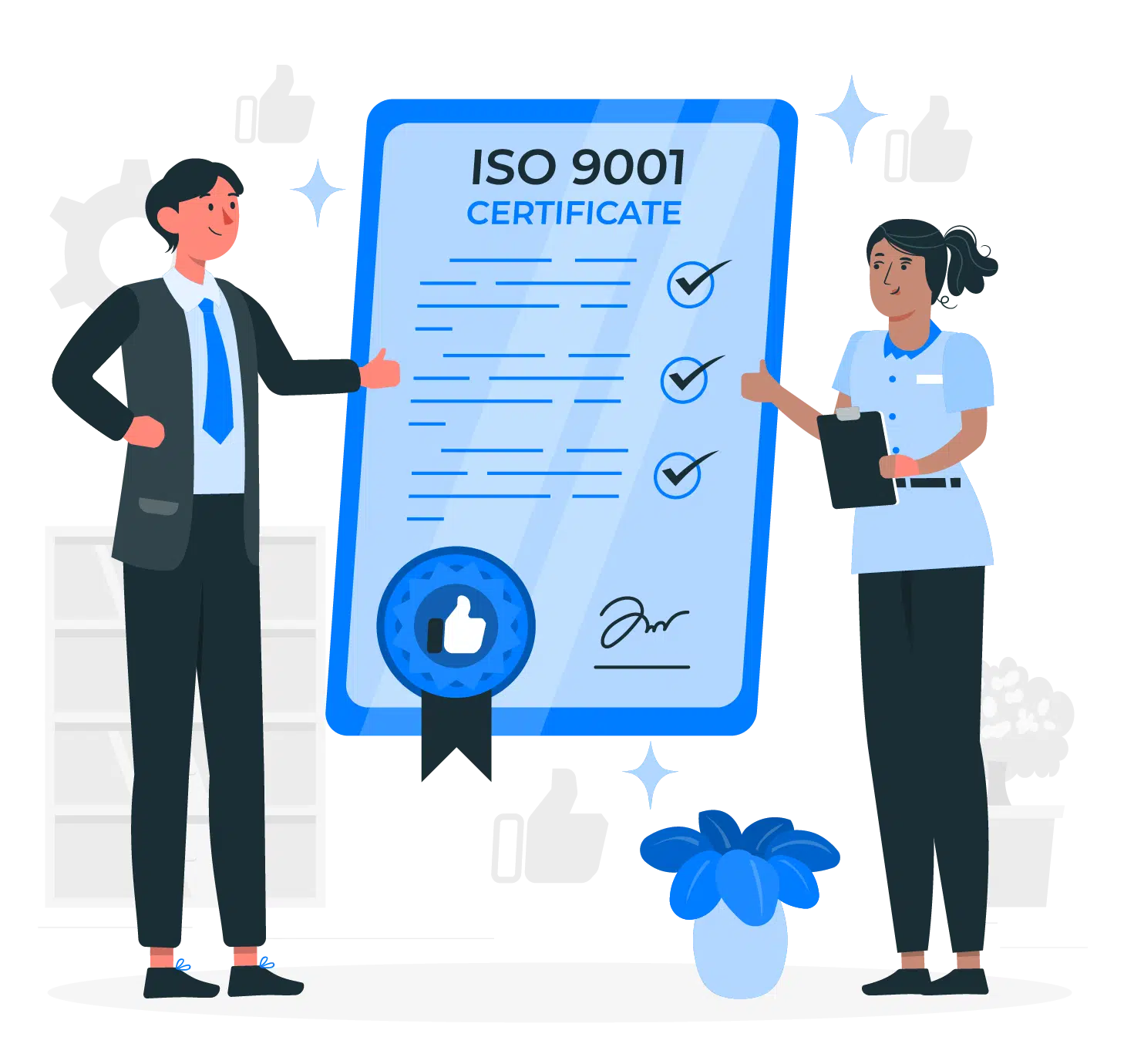
Why, and to whom, does ICF accreditation matter?
Simply put — anyone who wants to build a credible and successful career as a coach should consider getting accredited by ICF.
Think of ICF as a governing body that gives immense credibility to establishing yourself as a coach.
It is by no means a requirement, and no one can stop you from independent coaching if you do not get certified.
But, if you do, it puts you in a league above most other coaches.
Plus — if you are thinking of being affiliated with an institution as a coach, you will most definitely be required to show proof of certification.
Other than the bureaucratic reasons to be certified, it is also a good learning and educational experience for anyone to be certified.
In the training courses that ICF conducts, they require all participants to complete a set amount of coaching hours before they can get certified.
This ensures that the coaches can put what they learnt into practice and derive the highest possible value for their clients.
So I recommend anyone who wants to be a good coach to seriously consider investing in a coaching certification from ICF.
How can I become accredited by ICF?
By now, I’m sure you’ve picked up on how important getting certified by ICF is.
So let’s now look into the types of certification available, how to find the one suitable for you, and the procedure for getting it.
As stated on the ICF website, there are three levels of ICF accreditations. They are all for coaches and include varied learning materials.
The three levels of certification are:
1. Associate Certified Coach or ACC (First level)
a. ACC covers around 60+ hours of training followed by another 100 hours of practical coaching certification.
b. You complete an entire ICF-accredited training program through an ICF-recognized institute.
A recognized program includes at least 125 student contact hours, 10 hours of mentor coaching, and a performance evaluation process.
The mentor has to be a certified PCC or MCC holder.
c. Out of the 100 hours of practical coaching, at least 70 hours are paid for. ICF requires you to have at least 8 clients to complete the required hours and even helps you find the clients.
d. You need to complete 25% of your hours of training within the first 24 months of submitting for accreditation.
e. You need to submit recordings of your sessions and classroom experience for verification.
f. It takes 4 weeks to review your application.
2. Professional Certified Coach or PCC (Second Level)
a. PCC covers around 125+ hours of training followed by another 500 hours of practical coaching.
b. The same rules are followed as for ACC in terms of evaluation, support, documentation, etc.
c. Out of the 500 hours of coaching, at least 440 must be paid coaching with at least 25 different clients.
The record must be submitted within 24 months of the accreditation request.
d. Your mentor for PCC certification cannot be someone you have worked with during your ACC certification.
e. It takes 4 weeks to review your application.
3. Master Certified Coach or MCC (Third level)
a. MCC covers around 200+ hours of in-class training and more than 2500 hours of practical coaching experience.
b. All the rules and regulations are the same as ACC and PCC.
c. Out of the 2500 hours of coaching, at least 2200 hours must be paid with experience from 35 different clients.
d. It takes 18 weeks to review your accreditation.
It is important to note that the certifications offered by the ICF are exclusive, and do not translate to certifications offered by any other institute.
ICF follows a unique method and approach to coaching, which is their Intellectual Property, making it impossible to be copied or replicated by others.
It might seem quite overwhelming to choose which certification to opt for.
I recommend starting with ACC first; it will equip you with all the fundamental knowledge needed to be a successful coach.
After a few years into your coaching journey, you can think of leveling up your knowledge and expertise and opt for the next level of certification.
How much does ICF accreditation cost?
To assess how much ICF accreditation will cost you, let’s break it down based on the different levels and whether you are already a registered member of ICF.
ICF members get discounted rates.
You can refer to this part of the article to understand whether you qualify for membership or not.
Accreditation cost according to the levels and program you choose:
1. ACC
a. For members: USD 100.
b. For non-members: USD 300.
2. PCC
a. For members: USD 300.
b. For non-members: USD 500.
3. MCC
a. For members: USD 575.
b. For non-members: USD 775.
Where can I get accredited?
There are a variety of training courses that run in accordance with the ICF guidelines.
ICF has a huge database of recognized courses in various countries and in multiple languages. You can find this database here.
Through this database, you can search for various courses running near you and get enrolled based on your preference.
Each institute will have its own way of teaching but will have a common thread of topics covered as required by the ICF.
How much do ICF-recognized coaches get paid?
In a nutshell — while an ICF accreditation is not required, it is highly recommended and can add immense value to your coaching.
While coaching fees vary according to your credibility, the basic that an ICF-certified coach can charge is USD 50 per session, with the upper limit being a four-figure sum.
It is rare to have enough credibility to charge four figures per session (unless you’re a celebrity coach) but you can safely charge up to three digits as you gain expertise and knowledge.
The higher your rates, the more probability of your clients demanding to see some sort of certification.
Hence, only ICF-certified coaches can charge on the higher end.
Four Steps of ICF Accreditation
The accreditation process for ICF usually follows these three steps:
- Getting in-class education,
- Logging in the necessary hours for the level you want,
- And, finally, finishing the required mentoring hours.
Let’s break down each of these steps and see what they entail.
Step 1: Completing an ICF Certified Course
The best way to get recognized course training is by searching for, and following, an accredited ICF training program.
I have mentioned here how you can do that.
There are three types of accreditation courses — Level 1, Level 2 and Level 3 as we discussed before.
Graduates from level one can apply for Associate Certified Coach (ACC) Credential while graduates from Level 2 can go for Professional Certified Coach (PCC). Level 3 graduates are eligible for Master Certified Coach (MCC).
Step 2: Completing the Required Coaching Hours
As mentioned in the section above, each level of ICF accreditation has its own requirements for the number of hours of coaching needed to qualify for accreditation.
The main thing is that at least 88% of your logged coaching hours must be paid sessions.
For ICF approval, you need to keep a detailed log of client information like:
- Name and email,
- Hours spent on each client,
- Client session dates, and,
- Even recordings of your sessions.
These hours must be of you coaching a client and not of you being coached.
Also, 25% of said hours must be completed in the first 24 months after finishing your course.
The age of your clients does not matter, as long as the sessions are paid.
For minors, you would need permission from their legal guardians to share their details.
You can look for clients through various mediums such as personal contacts or online, through websites. You may also coach fellow coaches as long as they pay you.
ICF reserves the full right to randomly audit your log.
During this audit, they may contact your clients to corroborate your sessions. So, you have to be honest while filling your logs.
Step 3: Partnering with a Mentor
The last step of accreditation requires you to partner with a mentor coach. It ideally has to be someone who hasn’t mentored you before.
You need to log a specified number of mentoring hours (at least 10) spread over a minimum duration of 3 months. Out of these ten hours, up to seven hours can be group mentoring sessions.
Your mentor can only be someone who is a step above your accreditation.
For example, ACC trainees need a PCC or MCC coach, PCC trainees need an MCC coach, and MCC trainees need another certified MCC mentor.
If you have a coach with a training level lower than yours, your mentorship hours won’t be counted. In certain cases, ACC trainees can seek mentorship from other ACC-certified coaches.
I recommend you complete around 80% of your coaching hours before you seek to complete your mentorship hours.
ICF also can put you in touch with mentors for this part of the process.
Step 4: Taking the Accreditation Assessment
After successful completion of the first three steps, you can head to the ICF website to complete the Coach Knowledge Assessment (CKA) which is fairly easy to pass.
Once you have taken the Coach Knowledge Assessment test, you need to follow these four steps:
- Submit the log of all of your coaching and mentoring hours along with the audio files and session transcripts, as requested.
- After this submission process, you will need to complete a performance evaluation.
- Following the performance evaluation, you will need to pay the fees needed for accreditation.
The fee structure is given here. I suggest you become a member of ICF first, because it will end up being cheaper.
- For the last step, you will also have to submit your ACTP/ACSTH completion certificate.
Finally, after finishing that entire process, your application will be taken up for review.
This review usually lasts 4 weeks for ACC and PCC accreditation, and upto 18 weeks for MCC accreditation.
It may sound like a long process but, trust me, it is one of the fastest and easiest accreditation compared to other programs.
Plus, it is the most recognized.
The bottom line is — do not think twice before investing in ICF accreditation!
Step 3:
Client Testimonials
Why don’t you have it straight from the horse’s mouth, so to speak?
Let me take you through the stories of a couple of ICF-certified coaches as they share the value that the accreditation brought to their lives and careers.
Let’s get right into it.
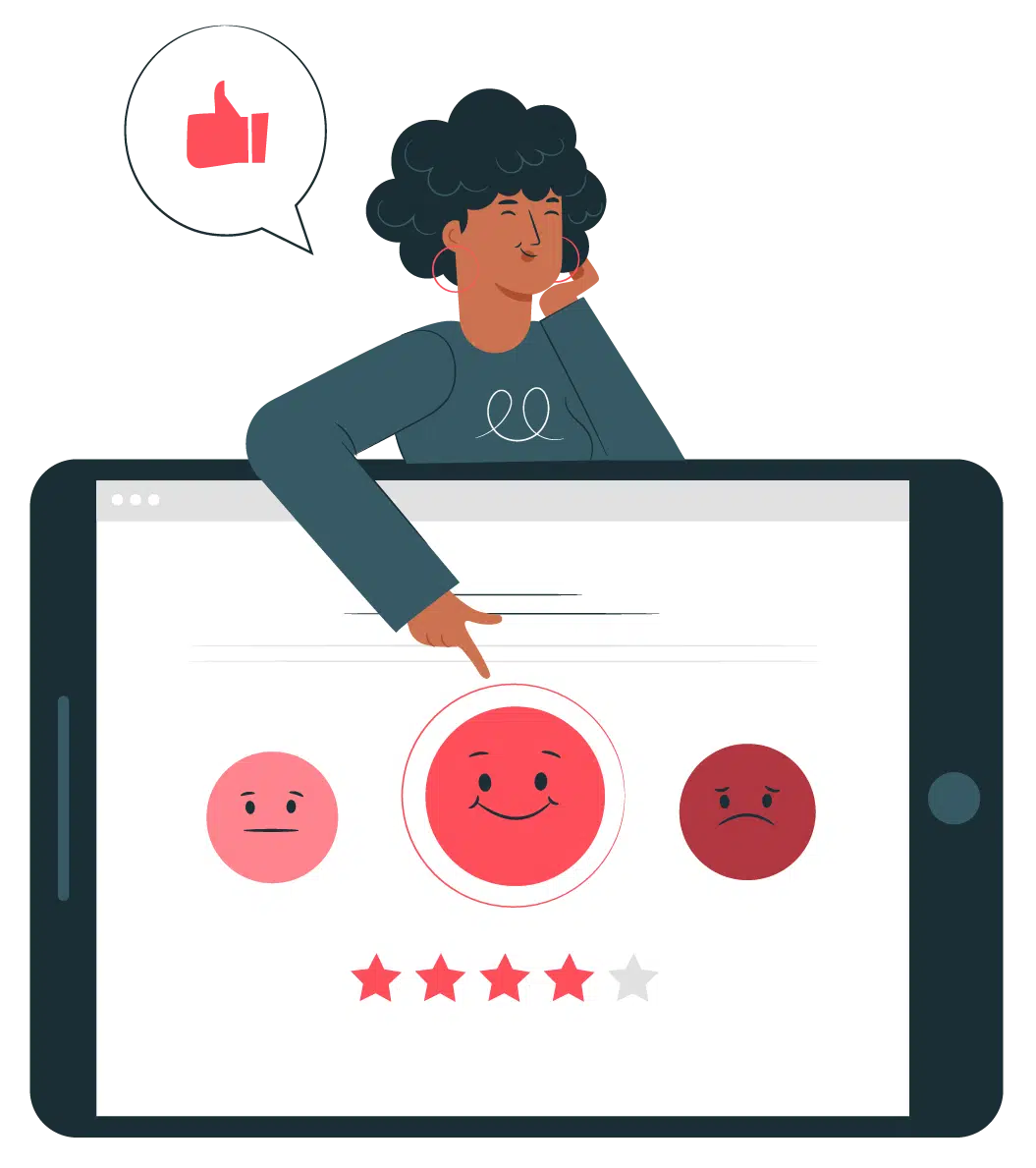
Betsy Sarris, ICF-certified Coach
Betsey Sarris received her ICF certification in April 2021 and only after meeting all graduation requirements from the ICA, or International Coaching Academy, in Australia.
She opted for the Advanced Certified Training Program (ACTP) because it offered the most advanced learning.
Her “CPC” was the first step toward earning my “ACC” from the ICF. “My certification journey was amazing,” she shares. “Difficult, at times, due to the time commitment necessary, but well worth it. It allowed me to interact closely with wonderful people all over the world from various cultures and generations. An invaluable experience!”
Sarris says she consistently found the ICF to be very professional and to demand excellence and integrity from those who achieve certification through them. “I’ve noticed they’re in constant motion in making their oversight of the coaching field the best it can be,” she remarks.
“I find they demand integrity and excellence from themselves as well. I know that, at least in the USA, there are many local ICF branches that stem from the mothership, ICF.”
To be a member of a local branch, one must first have membership with the global entity. She summarizes that her “experience with ICF” will likely never end unless they dissolve.
“They are — as they say and, which I find true, — the ‘gold standard’ in coaching.”
Being certified by the ICF not only validates Sarris’ earned credentials, but also offers her guidance in how to be the best she can be in her field. There are constant opportunities for growth, as well.
“I’m most thankful for the level of professionalism and integrity that they not only maintain,” she says. “But also demand from those they certify. I’m nearly equally thankful for the local ICF branches who demand the same.”
Shane Mckenna, ICF-certified Coach
Given his academic background, Shane Mckenna only valued the highest level of credentialing with the most credible authorities.
In the training sector, only recognized certifications are accepted by HR departments; so his decision to pursue an ICF-only certification was the inevitable choice.
“Every other type of certification is only mickey mouse and cannot be taken seriously,” he says. “The ICF course consisted of both theory and practice sessions, which were facilitated by an ACC level trainer and included much self-reflection, peer review, and skills-building sessions.”
Mckenna says he imagines that each training center has its own techniques for delivering the ICF curriculum; yet, as an experienced educator, he was happy with his own engagement in the course and the progress he made with other participants. The training company used an LMS to provide learning support throughout the course and which he still has access to.
“The ICF Portal is an outstanding point of reference for any coach,” he says. “It comprises significant resources that are updated frequently. I find it my go-to resource and am never disappointed in what becomes available for me.”
Mckenna is the co-founder of Zabeel Consulting Group in Dubai, whose principle goal is to serve the government sector in online training and Emirati development programs. The ICF brand is a very important branding credential there.
“I am very proud not only to be successfully engaged as an ICF coach with my small clientele, but also in my work as a coach trainer with university HR Degree program,” he says. “The discipline which the ICF demands of its trainees and more notably, the high level of ethical expectations of its members gives me the confidence to approach potential employers for my graduating students.”
Conclusion
Congratulations on completing this article!
I understand that it all comes down to whether it is worth it to be certified by the ICF or not.
In my honest opinion, the answer is — a thousand times YES!
I have never heard any horror stories or drawbacks of being certified. In fact, in the coaching community, there have always been miracle stories of how ICF has helped people tremendously.
An ICF certification is helpful at any stage of your coaching career and I recommend getting it as early as possible in your journey.
I hope to have covered ALL that you needed to know about ICF and have broken it down in many simple ways for your easy access to the material.
But I would like to hear your opinion and if there is anything that you would like to add.
Let me know in the comments section and I’ll make sure I address all your queries.
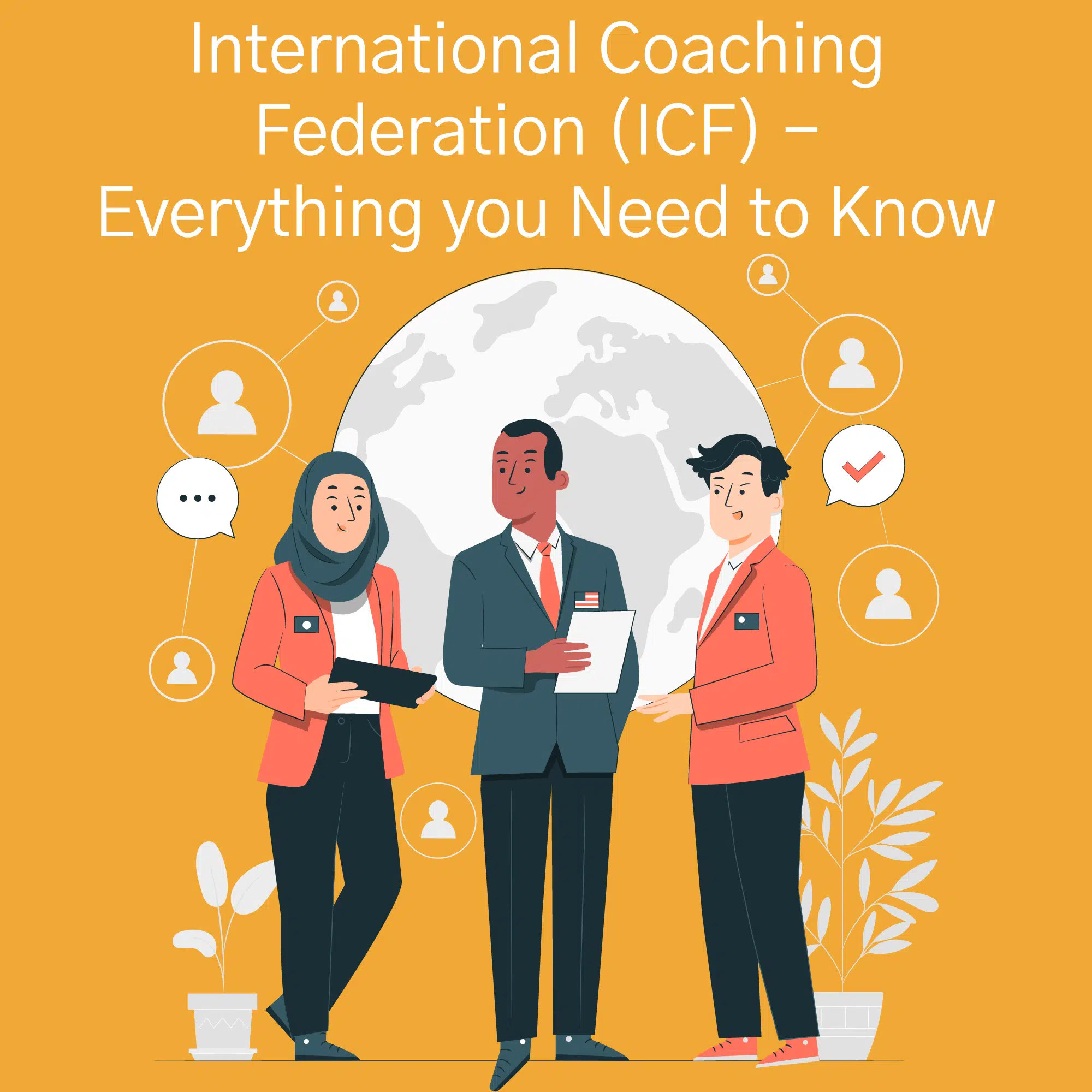
Download a FREE PDF version of this guide…
PDF version contains all of the content and resources found in the above guide.
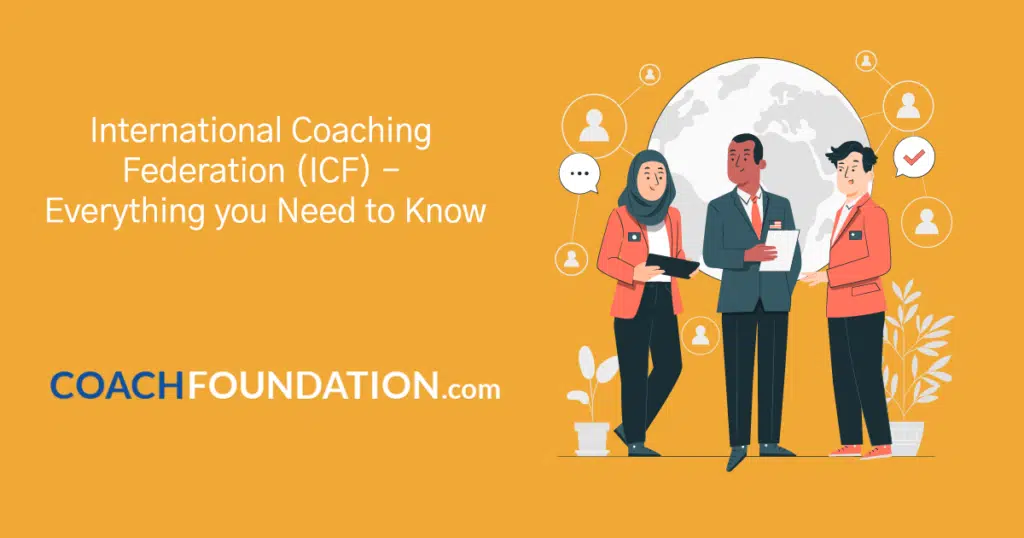


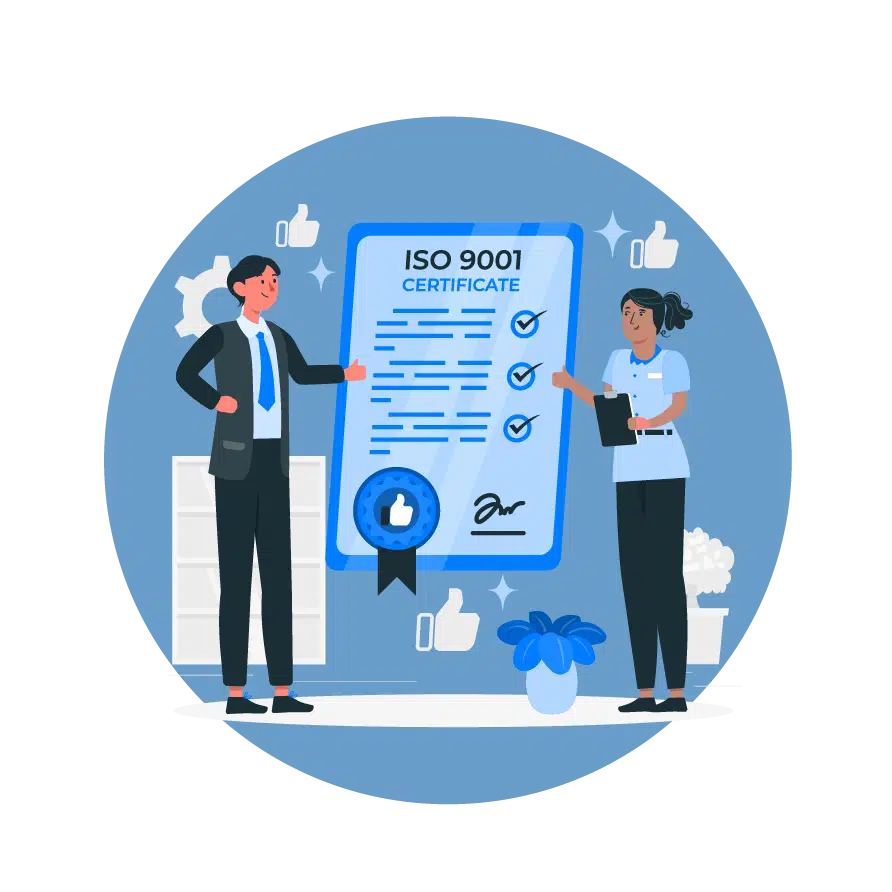

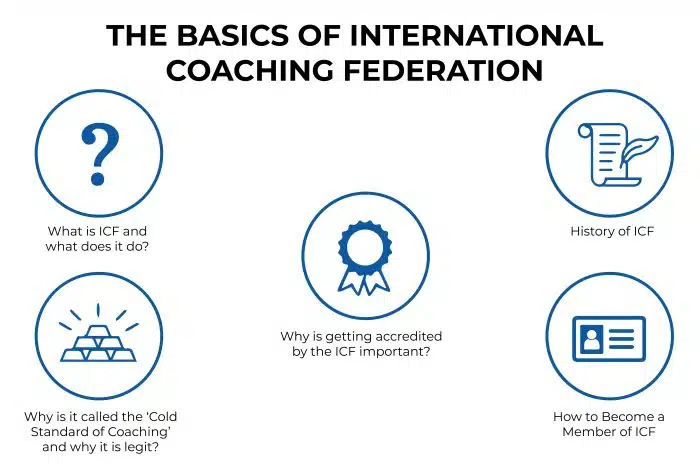
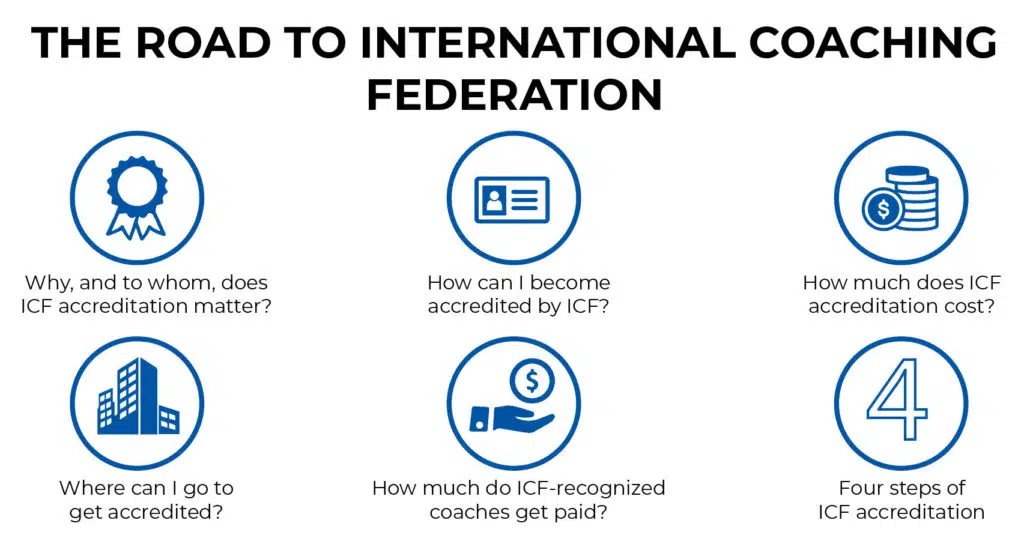
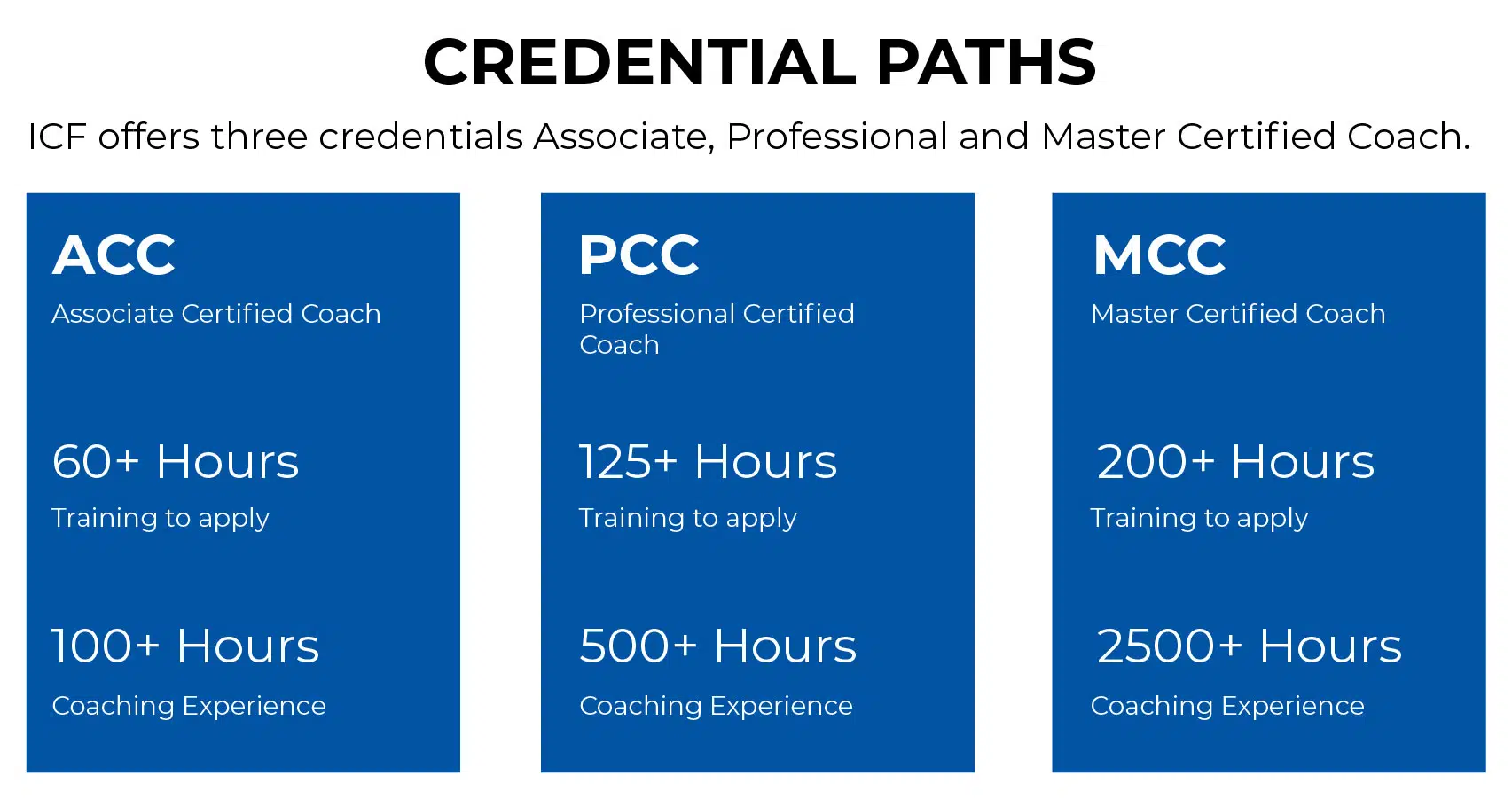
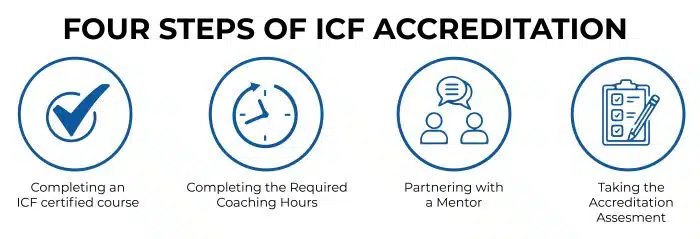







Must say, it was a highly effective guide and one of the best articles that described ICF thoroughly. I had lots of unclarified doubts regarding ICF functioning which got cleared after going through the article.
I loved the level of practicality stated in the article. Understood various terminologies related to ICF and their benefits. Solved doubts related to certification of coaches and the process of becoming a coach.
I appreciate the writing style, formatting, and language used. It is very simple to understand and provides easy answers to all the questions. I had to visit several websites to infer more information regarding ICF but this article was very useful.
I was thrilled to go through this article, it has very briefly explained ICF, the process of becoming a coach, requirements, and training, and certification courses. As I aspire to become a coach in the future, this article has given me the right direction to pursue my dreams.
I am grateful to this wonderful guide! I do not being to a psychological background and never had been to other training and practices for becoming a coach but later, I was thrilled to take up this as my career. As described very well in the article, I took ICF certifications and my niche is flourishing.
Direction setter. I was very confused about selecting an appropriate niche for my coaching business and lost almost all hopes, efforts, and investment in this firm. With the help of this article, I was able to rectify my mistakes and modify them.
I am new to coaching business firms and never thought of establishing a coaching business. I lacked appropriate direction and ideas for gathering new, potential clients and failed from time to time. Through this article, I improved my skills and leveraged them effectively.
ICF is a powerful yet responsible federation responsible for the better functioning of the coaching industry. I knew very little about this. I am thankful to the article for increasing my insights about ICF and its other bodies.
An all-in-one informative article. I am a coach but lacked certification because I thought it would be a tiresome and expensive process. But after reading this article, I planned to take the certification at a minimal cost and become a certified coach. This has increased my client rate.
A very helpful guide for new learners. Those who had difficulty in understanding ICF and its rules can go through this and increase their learnings on the topics they face difficulty with. ICF is a trusted source to gather information and this article has keenly defined its other advantages.
One of the best articles online. The article was originally written and had unique thoughts, notions about different perspectives. I must recommend this to all the people who are on the journey of becoming coaches or are serving as a coach.
I lacked ideas for niche establishment and finding appropriate clients for the business, the article has stepwise points to go about and find them meaningful. In this article, everything was written with the utmost professionalism and nothing was scattered.
An effective guide for gaining more knowledge on ICF. I wanted to gather potential information for making a research analysis of different coaching domains. I landed on this page after visiting lots of other articles but simply, I will recommend going through these articles because of their clear outlines and structured format.
The spacing between sentences, informative content, structured format, high keyword density, proper outlines contributes to its richness. I must say, the article is very well written and included the majority of the points.
I knew what exactly ICF is but never looked upon its advantages, functions, and training for new coaches. The article was an eye-opener and it has helped me to dump previous myths regarding ICF and other forms of coaching. Glad to read the full article.